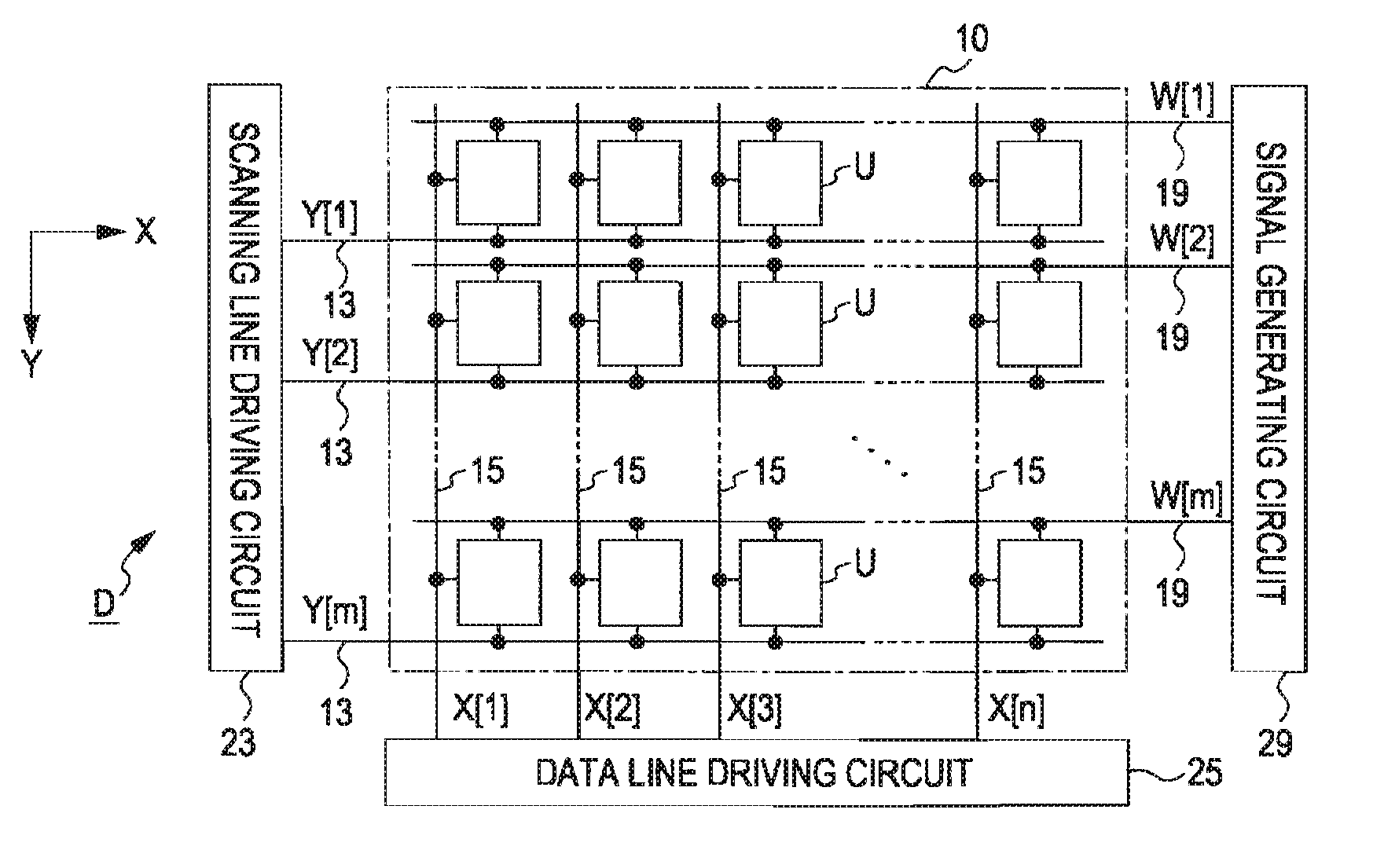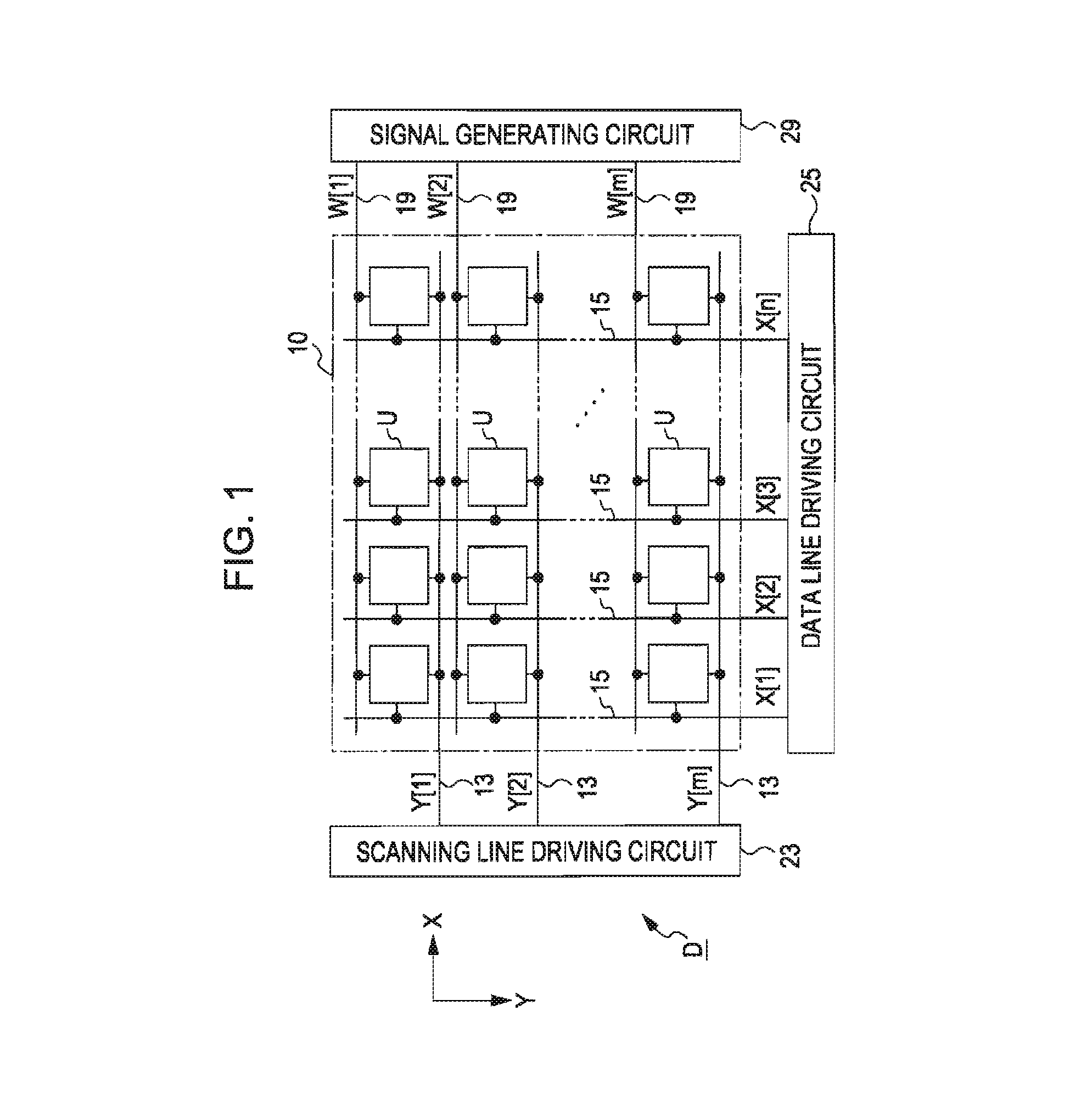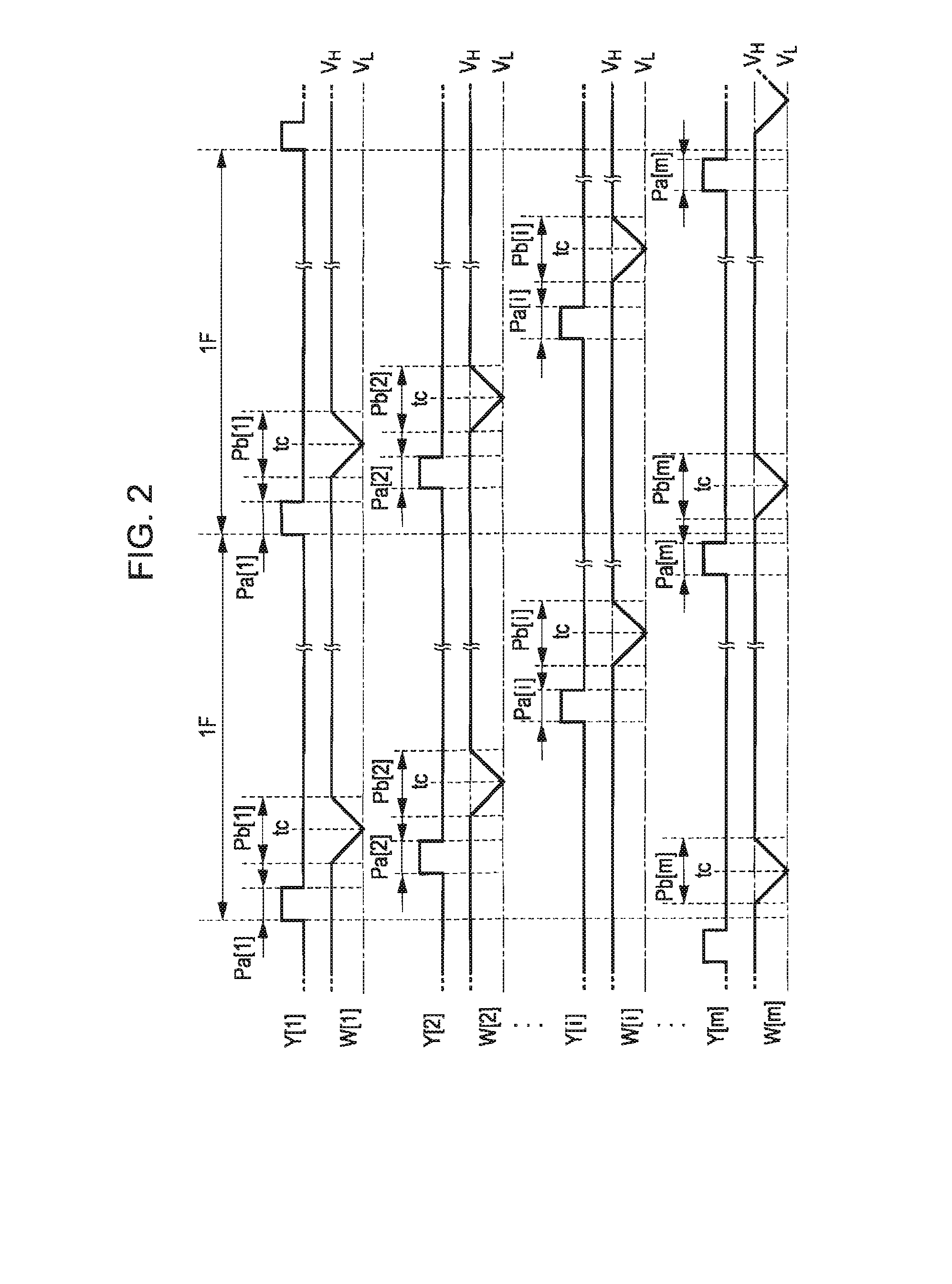Electronic circuit, electronic device, method of driving electronic device, electro-optical device, and electronic apparatus
a technology of electronic devices and circuits, applied in static indicating devices, instruments, photoelectric discharge tubes, etc., can solve the problems of reducing the total number of transistors in each unit circuit, increasing manufacturing costs, and difficulty in ensuring the time-emitting period
- Summary
- Abstract
- Description
- Claims
- Application Information
AI Technical Summary
Benefits of technology
Problems solved by technology
Method used
Image
Examples
first embodiment
[0072]FIG. 1 is a block diagram illustrating a structure of an electronic device according to a first embodiment, of the invention. An electronic device D shown in FIG. 1 is corresponds to an electro-optical device that is used in various electronic apparatuses as an image display device, and includes an element array unit 10 in which a plurality of unit circuits U are two-dimensionally disposed, and various circuits a scanning line driving circuit 23, a data ling driving circuit 25, and a signal generating circuit 27) that drives the unit circuits U. In this case, each of the scanning line driving circuit 23, the data line driving circuit 25, and the signal generating circuit 27 may be mounted on the electronic device D as an independent circuit, or a portion or all of these circuits may be mounted on the electronic device D as a single circuit.
[0073] As shown in FIG. 1, the element array unit 10 includes m scanning lines 13 that extend in an X direction, m reference signal lines ...
second embodiment
[0093] Next, a second embodiment of the invention will be described. In the second embodiment, the same constituent elements as the first embodiment are denoted by the same reference numerals, and the description thereof will be appropriately omitted.
[0094]FIG. 5 is a circuit diagram illustrating a structure of one unit circuit U in an electronic device D according to the present embodiment. As shown in FIG. 5, the unit circuit U according to the present embodiment has a structure in which an n-channel-type transistor 37 is additionally provided in the structure according to the first embodiment shown in FIG. 3. The transistor 37 corresponds to a switching element that is interposed between the input terminal T and the output terminal of the inverter 34 and controls electrical connection between the input terminal T and the output terminal of the inverter 34 (conduction or non-conduction).
[0095] The gate of the transistor 37 is coupled to a wiring line that is supplied with a rese...
fifth modification
[0105] In the above-mentioned embodiments, the OLED element has been exemplified as the electro-optical element 35. However, the electro-optical element that is adopted in the electronic device of the invention is not limited thereto. For example, in addition to the OLED element, various self-emission elements, such as an inorganic EL element, a field emission (FE) element, a surface-conduction electron-emitter (SE) element, a ballistic electron surface emitting (BS) element, and a light-emitting diode (LED) element, and various electro-optical elements, such as an electrophoresis element, an electrochromic element, or the like, may be used. Further, the invention may be applied to a sensing device, such as a biochip or the like. In the invention, the driven element is a concept that includes all elements driven by applying an electric energy. The electro-optical element such as the light-emitting element is only an example of the driven element.
PUM
 Login to View More
Login to View More Abstract
Description
Claims
Application Information
 Login to View More
Login to View More - R&D
- Intellectual Property
- Life Sciences
- Materials
- Tech Scout
- Unparalleled Data Quality
- Higher Quality Content
- 60% Fewer Hallucinations
Browse by: Latest US Patents, China's latest patents, Technical Efficacy Thesaurus, Application Domain, Technology Topic, Popular Technical Reports.
© 2025 PatSnap. All rights reserved.Legal|Privacy policy|Modern Slavery Act Transparency Statement|Sitemap|About US| Contact US: help@patsnap.com



